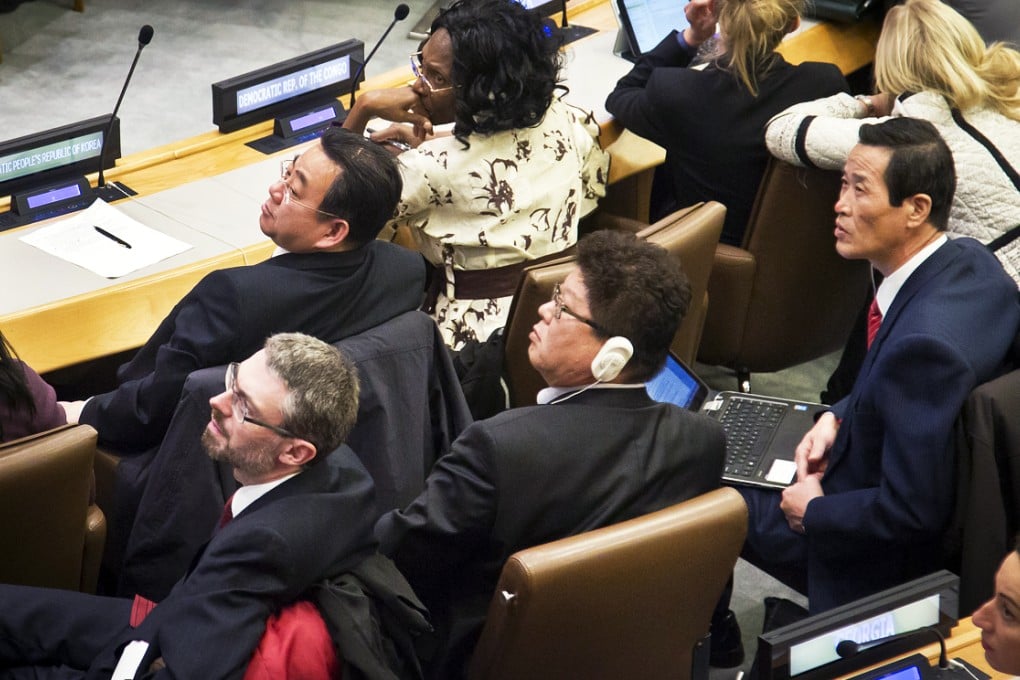North Korea threatens to hold fourth nuclear test after UN human rights ruling
Nation's move comes as it claims United States hostility led to approval of landmark UN resolution on human rights violations, which includes idea leader Kim Jong-un could be targeted by prosecutors

North Korea threatened today to bolster its war capability and conduct a fourth nuclear test to cope with what it calls United States hostility that led to the approval of a landmark UN resolution on its human rights violations.
On Tuesday a UN committee adopted the resolution urging the Security Council to refer the North’s rights situation to the International Criminal Court.
It is the first time a UN resolution included the idea that the North’s supreme leader, Kim Jong-un, could be targeted by prosecutors. Before the UN vote, a North Korean envoy threatened a nuclear test.
On Thursday, Pyongyang’s Foreign Ministry called the resolution’s approval a “grave political provocation”, and said it was orchestrated by the US, although it had been drafted by the European Union and Japan.
An unidentified ministry spokesman told state media that the North’s war deterrence would be strengthened in an “unlimited manner” to cope with US hostility, which was “compelling us not to refrain from conducting a new nuclear test any longer”.
His comments on the nuclear test were nearly identical to what Choe Myong Nam, a foreign ministry adviser for UN and human rights issues, said at the UN.
The North has used similar rhetoric before when there has been increased tension with other countries.